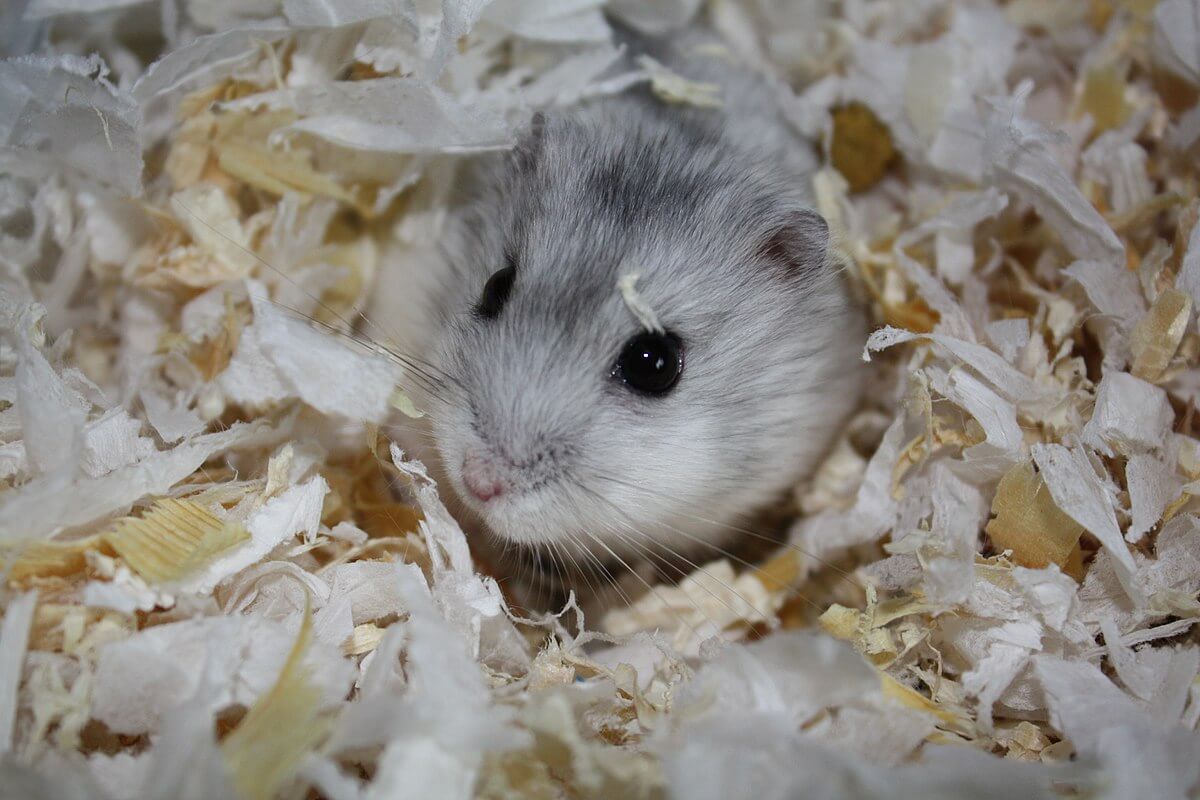
Hamsters are furry little creatures that are incredibly adorable, and they are great pets, especially for children. As compared to bigger pets, they are easy to look after as they are generally limited to their playful cages. However, when it comes to their diet, you need to keep a proper check on them and supervise what goes into their tiny stomach. They basically require protein, vegetables, and fruits. With some amount of protein, one must assume it is alright to feed them cheese. But, can hamsters eat cheese?
Table of Contents
Hamster’s Diet
A hamster’s diet is naturally suited to the environment it lives in, which is usually a dry one. Seeds, insects, grasses, and grains are among the major components of its diet out in the wild.
Like humans, they are omnivores and feed on a diet of meat and vegetables. Moreover, dairy products have almost the same benefits for hamsters as they do for humans.
Hamsters require fresh food daily. Although they are instinctive about which food their body needs, you should offer a variety of grains and vegetables to them. Nonetheless, because of their small size, you should make sure not to overfeed your pet hamster. The good news is that hamsters can eat cheese. But, in moderation.
What Is Cheese And What Does It Pack?
Cheese is produced from the coagulation of milk. It comes in a variety of forms and textures. Their flavors and textures depend on the type of milk they are made of, and an animal’s diet determines the kind of milk it produces.
Cheese contains a high content of calcium, protein as well as phosphorus and fat. It is usually left under controlled conditions to bring out its flavors. New cheese is salty and has a high moisture content. Hard cheese has a stronger flavor, low moisture content, and a rubbery texture.
There are around 500 different types of cheese in the market. We are going to look at what kinds are suitable for hamsters to consume.
Benefits Of Cheese
Because it is a dairy-based product, cheese contains a considerable amount of protein and calcium. Calcium is an essential nutrient for the body that helps in maintaining healthy blood clotting, bones, and teeth, as well as regulating blood pressure. Protein is also necessary for the development, growth, and strength of bones, in humans and hamsters alike.
In addition to the components mentioned above, cheese also contains a high amount of sodium and fat. Both these ingredients can be quite harmful if the hamsters consume them in large quantities. To gain the health benefits of cheese, you need to choose wisely.
Hamsters And Cheese
Hamsters derive their name from an old German word that means to hoard. They are nocturnal creatures that go looking for food in the night. Whatever they find, they bring home to add to their stash or pile of food.
They have little pouches in their cheeks that they use to store or carry food to their stash. These pouches are sensitive and can easily become hurt or infected.
To keep these pouches free from injury and infection, avoid feeding anything sticky or with sharp edges to your hamsters. Melted cheese is among the sticky foods that you must not feed to your pet hammy.
Melted cheese can get stuck to the dry cheek pouches of a hamster, and the only person who can remove it is your vet.
If any cheese falls in the hamster’s cage, make sure to remove it before it goes bad. Not only does it create a stink, but it can also cause your pet to fall sick. No one wants that for their tiny hamster.
Which Cheese Is Safe For Hamsters To Consume?
Hamsters are a type of mice, and on TV, you can always see mice chasing after a slice of cheese. But, in reality, that is not the case.
They can be given cheese but only in small quantities, and sometimes. Cheese has a significant number of calories which is why you should only serve it as a rare treat, and not as a significant component of its regular diet.
Low fat and mild cheese are the best options for your pet. Additionally, they should also be low in sodium, preservatives, spices, and herbs, not to mention free of lactose. If you can get an organic cheese, that would be ideal.
Cottage cheese is fresh, mild, and has a low amount of fat that you can feed your hamster. Cut it up in tiny pieces or shred it before serving it to your furry friend.
Made from cow’s milk, Gouda is a mild cheese that is also suitable to feed a hamster. Butter cheese is semi-soft, and also a good option.
Frequency Of Cheese Treats
Cheese is high in calories and fat, and if your hamster consumes it in large quantities, it can eventually lead to obesity. Just like humans, obesity in hamsters can lead to quite a few diseases, such as diabetes, heart disease, and cancer.
Hamsters have an average life of two years. A happy and healthy life is more important than a regular intake of cheese. Moreover, cheese does not contain the vitamins and minerals that hamsters actually need for a healthy functioning body.
Limit the consumption of cheese to once or twice a month, and you will have a happy and healthy hamster running around its cage.
Is Cheese Toxic?
Cheese packs a variety of minerals and vitamins that hamsters can benefit from. However, the fat and sodium content of cheese is harmful to their health. Most low fat and low sodium cheese are safe options to treat your pets with.
You should avoid blue and white cheese at all costs because they are toxic to hamsters. They are unable to vomit, so they cannot throw up the toxic material. If your hamster consumes any of these, take them to a vet right away.
Your furry friends cannot tell you what they like and what they don’t. Before trying any new food, always give a little amount of it to your pet and see how they react to it. If they experience diarrhea or weight gain, stop giving it to them.
Conclusion
It is alright to give safe treats to your hamster, but be sure to monitor its quantity. Too many treats can cause diarrhea which will totally exhaust them.
Also, make sure that the cheese has come to room temperature before you serve it to them.
You May Also Interested In:
- Can Hamsters Eat Apples?
- Can Hamsters Eat Lettuce?
- 5 Best Hamster Foods and Treats (Reviews and Ultimate Guide)
Photo by Lexis0124 – Own work, CC BY-SA 4.0, https://commons.wikimedia.org/w/index.php?curid=63418002
Share this:
- Click to share on Twitter (Opens in new window)
- Click to share on Facebook (Opens in new window)
- Click to share on Tumblr (Opens in new window)
- Click to share on Pinterest (Opens in new window)
- Click to share on Reddit (Opens in new window)
- Click to share on Telegram (Opens in new window)
- Click to share on WhatsApp (Opens in new window)
- Click to print (Opens in new window)
